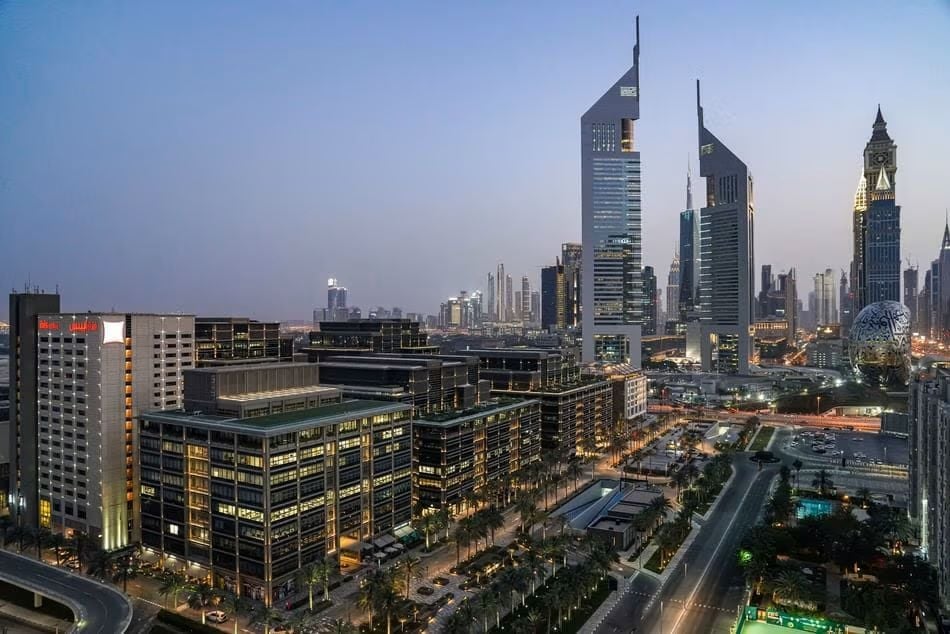
Dubai’s real estate market is undergoing a transformative phase, driven by technological advancements, sustainability initiatives, and a surge in demand from both investors and residents. As we look towards 2025, several key trends are shaping the future of this dynamic sector.
Sustainability at the Forefront
Dubai’s commitment to achieving net-zero emissions by 2050 is steering the real estate market towards eco-friendly developments. Developers are increasingly integrating green building standards, energy-efficient technologies, and renewable energy sources into their projects. By 2025, it’s anticipated that 35% of new office spaces in Dubai will be LEED-certified, up from 25% in 2023 . Communities like Al Barari and The Sustainable City are leading examples of this green revolution, offering residents a harmonious blend of luxury and environmental responsibility.
Technological Integration: Smart Homes and PropTech
The rise of smart homes and PropTech (Property Technology) is revolutionizing the way properties are bought, sold, and managed. AI-driven home automation systems, IoT-enabled devices, and blockchain for secure transactions are becoming standard features in new developments. The Dubai Future Foundation’s PropTech Sandbox initiative aims to foster innovation in real estate, enhancing efficiency and accessibility . These technological advancements not only improve the living experience but also increase property values and rental yields.
Luxury Real Estate Boom
Dubai continues to attract high-net-worth individuals seeking opulent living spaces. In 2024, the city recorded 948 luxury property sales priced at AED 15 million and above, with areas like Palm Jumeirah and Dubai Hills Estate leading the charge . The trend towards branded residences and ultra-luxury properties is expected to persist, with prime locations seeing price increases of 7-10% in 2025 . Notable developments include the $134 million villa on Jumeirah Bay Island and the $49 million penthouse in Burj Khalifa, both exemplifying the city’s appeal to affluent buyers .
Mixed-Use Developments and Community Living
The demand for integrated communities that blend residential, commercial, and recreational spaces is on the rise. Developments like Dubai Marina and City Walk have set the standard for mixed-use living, offering residents convenience and a sense of community. Future projects are likely to follow this model, enhancing the appeal of Dubai as a prime destination for living and investment .
Short-Term Rentals and Tourism-Driven Demand
Dubai’s thriving tourism sector continues to bolster the short-term rental market. With over 20 million visitors in 2024, areas like Dubai Marina and Downtown Dubai are seeing high occupancy rates in short-term rental properties . This trend is expected to continue into 2025, offering investors lucrative opportunities in the hospitality sector.
Government Initiatives and Infrastructure Development
The Dubai government plays a pivotal role in shaping the real estate landscape through initiatives like the Golden Visa program, which has attracted over 100,000 individuals since its launch . The Dubai 2040 Urban Master Plan aims to enhance infrastructure, expand green spaces, and promote sustainable urban development, further boosting investor confidence .
Conclusion
Dubai’s real estate market in 2025 is poised for continued growth, driven by sustainability, technological innovation, and a strong demand for luxury and community-centric living. Investors and residents alike can look forward to a dynamic and evolving landscape that offers a wealth of opportunities in the years to come.




Leave a Reply